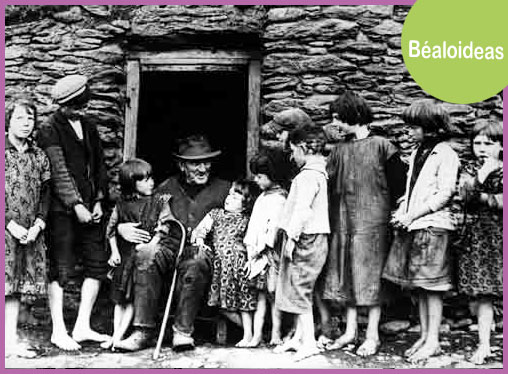Submit and share a story
The stories gathered in the 1930's were stored and preserved, eventually finding a home in Duchas at UCD. It is only in the last decade that they have become available to a wider audience through digitisation.
Now in 2016, eighty years after the first project of this kind in Ireland, the information landscape has changed forever. We are now 'digital first'. It is likely that a large proportion of the interviews will be on mobile digital devices. The information gathered can be collated and published online in rapid time. This brings with it responsibility to all engaged with the project to ensure full permissions have been understood and received for anything published.
Ready to Submit
The teacher has final say on what goes live.
The Threads Project has been set up to allow content to be added by students and teachers. A teacher can set up groups of students in their account. This provides the students with simple tools to add their content and arrange it in a story format. Students can preview, but they cannot publish. The teacher has the final say, and once the content has been reviewed and sign-off forms checked, the teacher can put the stories live.
Threads has been designed to allow a story consist of
- Text
- Images
- Audio Files
- Video Files or Links to Video uploaded to You Tube or Vimeo
- Files such as Word Documents, PDF's and Powerpoints
- Google Streetview
- Descriptive text about all the above
- Basic metadata
Where a number of school/class groups are working on Threads stories, a teacher can create a collection, and add all the stories to that collection. All of this is easily achievable within the Threads Teacher Dashboard

Let Common Sense Prevail
If in doubt, leave it out
The objective of the Threads Project is to provide a platform for the storage and display of oral history recorded locally by primary and post-primary students. In the information age that we now live in, teaching students about the importance of describing information (metadata), classifying information and clearing copyright for various purposes is a valubale lesson, and one that they will be faced with on an ongoing basis.
In the immediate future, the plan is to store and display the stories and collections on www.scoilnet.ie/threads, however, similar to how the 1930's School's Project was initially stored locally, and finally preserved at National Level, where these oral histories reside in 80 years time is unknown. What is known, is that they hope to capture accounts from around Ireland, that will help preserve our knowledge of our ancestors, culture and heritage for future generations.
As an online first project, transparency is a key factor. Any person interviewed for the project needs to be made aware that the information will be stored and displayed online for use worldwide. A comprehensive consent form is provided for each interviewee, where they will be asked to confirm this understanding and also asked to asign copyright for the use of the information gathered to the Threads project, which resided under the Department of Education.
Here are some thing to bear in mind;
- Ensure the students are aware of their ethical responsibility, and all information gathered is used for the purpose of the Threads projects only.
- Make sure the students understand the Consent Forms, and in particular
- Understand why copyright assignment is important and ask for full copyright assignment
- Discuss the final interview with the person being interviewed, and agree what can be used
- Make it clear to the interviewee that the information provided will be available worlwide on the Internet
- Ensure students obtain a consent form for every interview conducted
- Where family members' are interviewed, take special care to ensure no family secrets are unintentionally disclosed
- Ensure all interviewee's have their full faculties, and understand what they are doing

